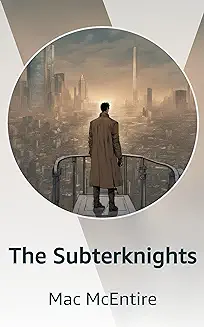Re-reading Shakespeare’s The Winter’s Tale! Act 3 scene 3 takes us to a new setting, a turning of the tide, and one of the bard’s most evocative speeches.
With the drama of Hermoine’s trial over, we now pick up with Antigonus, who has charged to take Hermoine’s baby into exile in Bohemia. He arrives with a mariner, or a sailor, who has brought him here. They’ve landed on the shores of a wilderness, rather than some port city. While this isn’t the big shift in tone the play is about to have, this would be a good place for a filmed version to go big with a lush outdoor location, a chance to take a breath after the lengthy trial.
Antigonus and the mariner discuss how a big storm is on the horizon, and how the mariner can’t stay for long. The conversation begins with Antigonus asking “Art thou perfect” that this is Bohemia. My Folger edition states that “perfect” means certain in this context, but I wonder if this is classic Shakespeare wordplay, in that their situation is, in fact, far from perfect.
Antigonus sends the mariner back to his boat, saying he won’t be long. Does the mariner know what Antigonus is up to with the baby? It’s possible. He says the heavens are angry, adding the phrase “In my conscience.” Also, this is more Heaven and Hell imagery in the play. I’m envisioning a far-out fantasy version of the play where Leontes’ people are hellish demonic types and Polixenes’ people are heavenly angelic types. In this space, a storm-swept wilderness, can be a weird barrier-type setting that characters must pass through to get from world to the other. And yes, in some foreshadowing, the mariner also warns Antigonus of dangerous wildlife in the area.
Antigonus then goes into an excellent speech. I’m surprised this isn’t considered one of Shakespeare’s all-timers, because there’s all kinds of great stuff here for an actor to work with. He talks about spirits of the dead walking among the living. He tells the baby he saw a vision of her mother Hermoine, who instructed him where to leave the baby. In this vision, he says, Hermoine named the baby Perdita. The footnotes all agree that Perdita means “She who is lost.” Hermoine’s ghost also tells Antigonus he’ll never see his wife Paulina again.
Antigonus’ description of the ghost is highly evocative, with her in white robes and head tilted to one side. (Does this mean Hermoine hanged herself? That could be one interpretation.) He says the ghost’s eyes are like “spouts.” None of my five books have a footnote for spouts, though I’m pretty sure we can interpret this as her tears. But in a far-out fantasy version, this could be glowing or fiery eyes.
That leads to a bigger question of how the ghost is portrayed. Should we see this ghost on stage? She could appear on a balcony above Antigonus as he says this, in spooky lighting. In a filmed version, we could cut to a flashback with his voiceover, seeing ghostly Hermoine appearing in his cabin with some cool horror movie effects. We could have Hermoine say her lines from the part of this speech. On the other hand, if we see her walking and talking now, that could take away from the impact of her return at the end of the play, and instead focus on Antigonus as he speaks these powerful words.
Antigonus adds more ghoulishness to the scene by saying the ghost shrieked as she melted into the air. He says he now knows that Hermoine is not only dead, but innocent according to the oracle. He places the baby on the ground with some items. The first, he says, is “thy character.” The Folger edition states that this means some letters describing where the baby came from, and that “character” used to refer to writing in general. I think this more clever wordplay, as we’ll see where Perdita goes from here. He also leaves her “this,” which the stage description says is a box. The Folger footnotes elaborate that the box contains money for when (or if?) someone finds the baby.
Antigonus concludes his speech with a sense of doom, saying that he is cursed, and unable to offer the baby a proper lullaby. He says he sees the heavens dim, for more Heaven/Hell imagery, and he finally says, “The chase is on.” But who’s chasing him? Why it’s… oops, ran out of time. We’ll get to the big moment next week.
Next: Let’s boo-boo.
* * * *
Want more? Check out my ongoing serial, THE SUBTERKNIGHTS, on Kindle Vella. A man searches for his missing sister in a sprawling city full of far-out tech, strange creatures, and secret magic. It’s a sci-fi/fantasy hybrid full of action, romance, mystery, and laughs. The first ten episodes are FREE! Click here for a list of all my books and serials.









